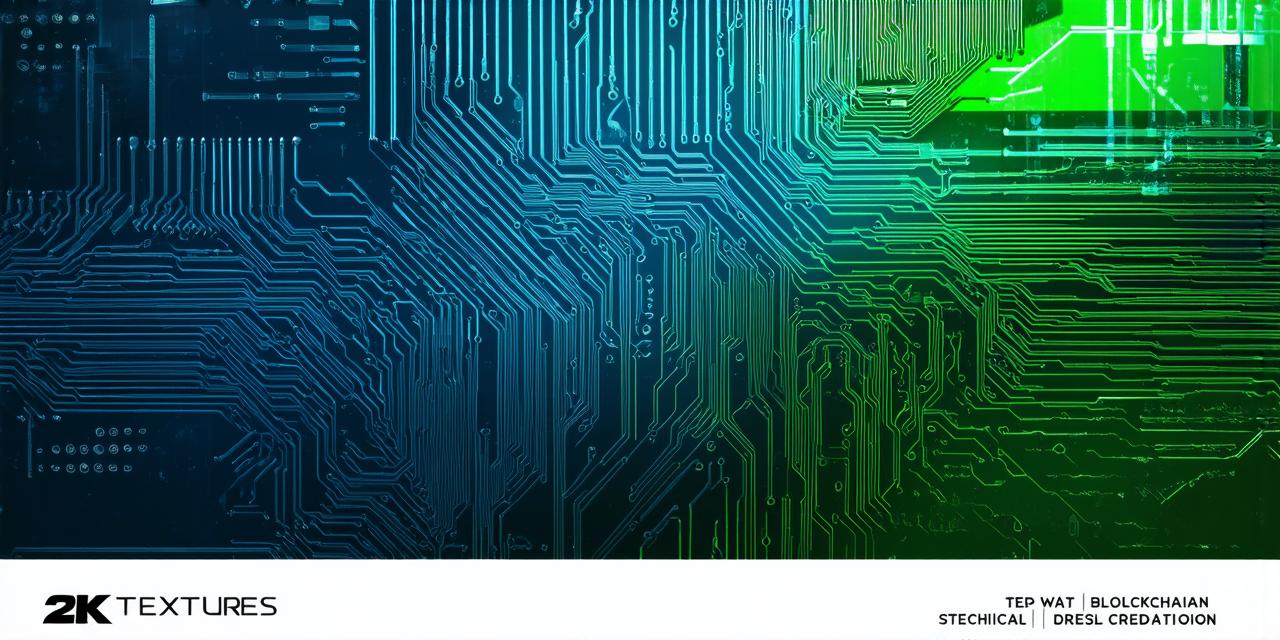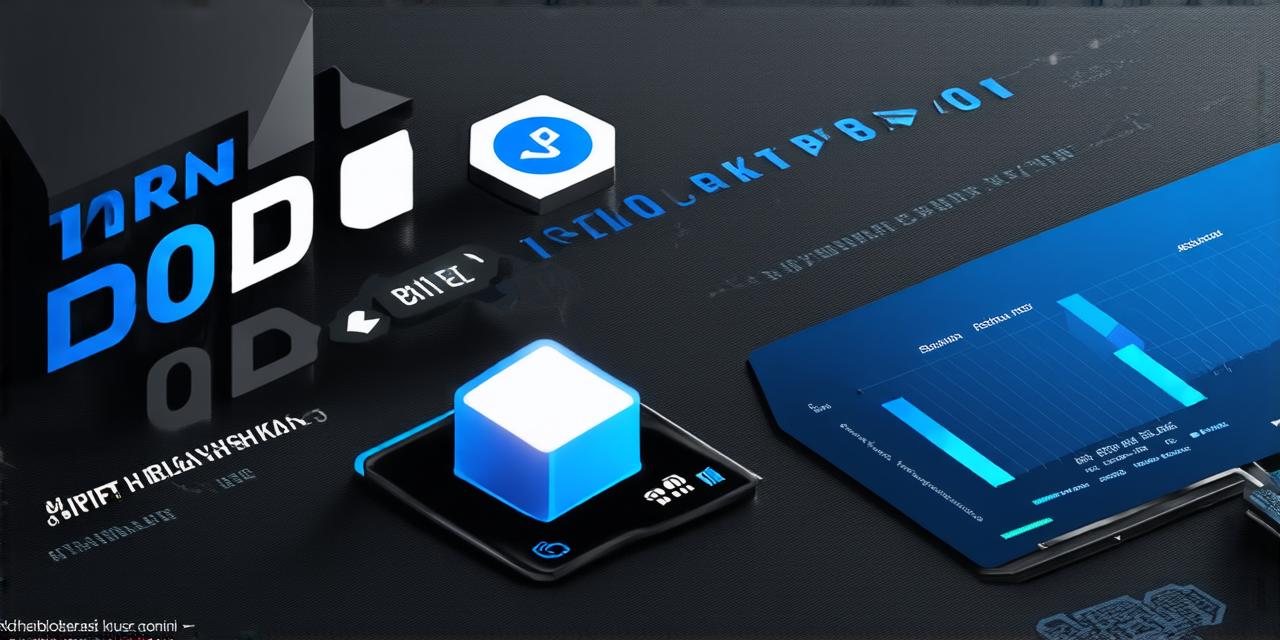Blockchain technology has been gaining popularity in recent years, especially in the field of supply chain management. It offers several advantages over traditional systems, such as increased transparency, security, and efficiency.
What is Enterprise Blockchain in Supply Chain?
Enterprise blockchain in supply chain refers to the use of blockchain technology to manage and secure data related to the production, distribution, and consumption of goods and services. It enables companies to track products from their source to their destination, ensuring that they are authentic, safe, and compliant with regulations. The technology also allows for the creation of smart contracts, which can automate various supply chain processes such as payments, quality control, and logistics.
Benefits of Enterprise Blockchain in Supply Chain
-
Increased Transparency: Enterprise blockchain provides a secure and tamper-proof way to store and share data related to the supply chain. This allows for greater transparency, as all parties involved can access real-time information about products and transactions.
-
Improved Security: Blockchain technology is known for its security features, such as encryption, consensus algorithms, and decentralization. These make it difficult for hackers to tamper with the data stored on the blockchain, reducing the risk of fraud and theft.
-
Enhanced Efficiency: Enterprise blockchain can automate various supply chain processes, such as payments, quality control, and logistics. This reduces the need for intermediaries, speeds up transactions, and saves time and money.
-
Compliance with Regulations: Enterprise blockchain can help companies comply with regulations by providing a secure and transparent way to track products and their movements throughout the supply chain.
-
Traceability: Enterprise blockchain provides traceability of products from their source to their destination. This helps companies to quickly identify and address any issues that arise during the supply chain.
Challenges of Implementing Enterprise Blockchain in Supply Chain
-
Cost: The implementation of enterprise blockchain can be expensive, as it requires specialized hardware and software, as well as skilled personnel to develop and maintain the system.
-
Technical Complexity: Enterprise blockchain is a complex technology that requires technical expertise to implement and manage. This can make it challenging for companies without in-house blockchain developers.
-
Data Quality: The accuracy and completeness of data stored on the blockchain are critical to its effectiveness. Companies need to ensure that they have high-quality data before implementing enterprise blockchain.
-
Regulatory Compliance: Enterprise blockchain needs to comply with regulations related to data privacy, security, and interoperability. Companies need to ensure that their blockchain system meets these requirements.
-
Scalability: As supply chains grow, the volume of data stored on the blockchain can increase significantly. This can make it challenging to scale the system to meet changing demands.
Best Practices for Implementing Enterprise Blockchain in Supply Chain
-
Define Clear Use Cases: Companies should define clear use cases for enterprise blockchain, identifying which processes they want to automate and which data they want to store on the blockchain.
-
Conduct a Feasibility Study: Before implementing enterprise blockchain, companies should conduct a feasibility study to assess its technical and financial viability.
-
Develop a Proof of Concept: Companies can develop a proof of concept to test the functionality of their blockchain system before investing in full-scale implementation.
-
Ensure Data Quality: Companies should ensure that they have high-quality data before implementing enterprise blockchain, as this is critical to its effectiveness.
-
Build a Strong Partnership: Companies should build strong partnerships with blockchain providers and other stakeholders to ensure the successful implementation of enterprise blockchain.
-
Train Personnel: Companies should train their personnel on how to use the blockchain system effectively, ensuring that they have the necessary skills and knowledge to manage it.
-
Monitor and Maintain the System: Companies should monitor and maintain the blockchain system regularly, addressing any issues that arise and updating the software as needed.

Real-Life Examples of Enterprise Blockchain in Supply Chain
Walmart’s Food Traceability Initiative
Walmart has implemented enterprise blockchain to track food products throughout their supply chain, ensuring that they are authentic, safe, and compliant with regulations. The system uses IoT sensors to monitor the movement of food products, providing real-time data on their location and condition.
Maersk’s TradeLens
Maersk has developed a blockchain-based platform called TradeLens, which allows for the tracking of shipments throughout the supply chain. The system uses smart contracts to automate various processes, such as payments and quality control, reducing the need for intermediaries.
Provenance
Provenance is a startup that uses enterprise blockchain to track products from their source to their destination. The system allows companies to verify the authenticity of products and ensure that they comply with regulations.



